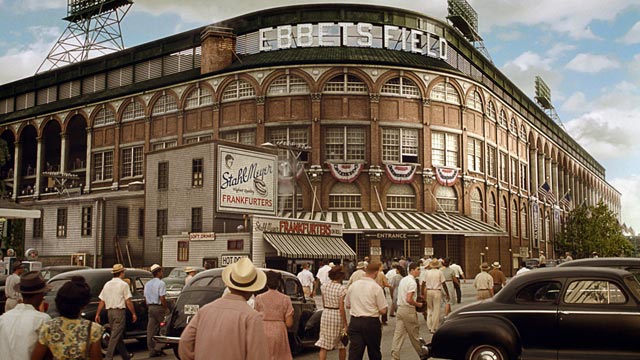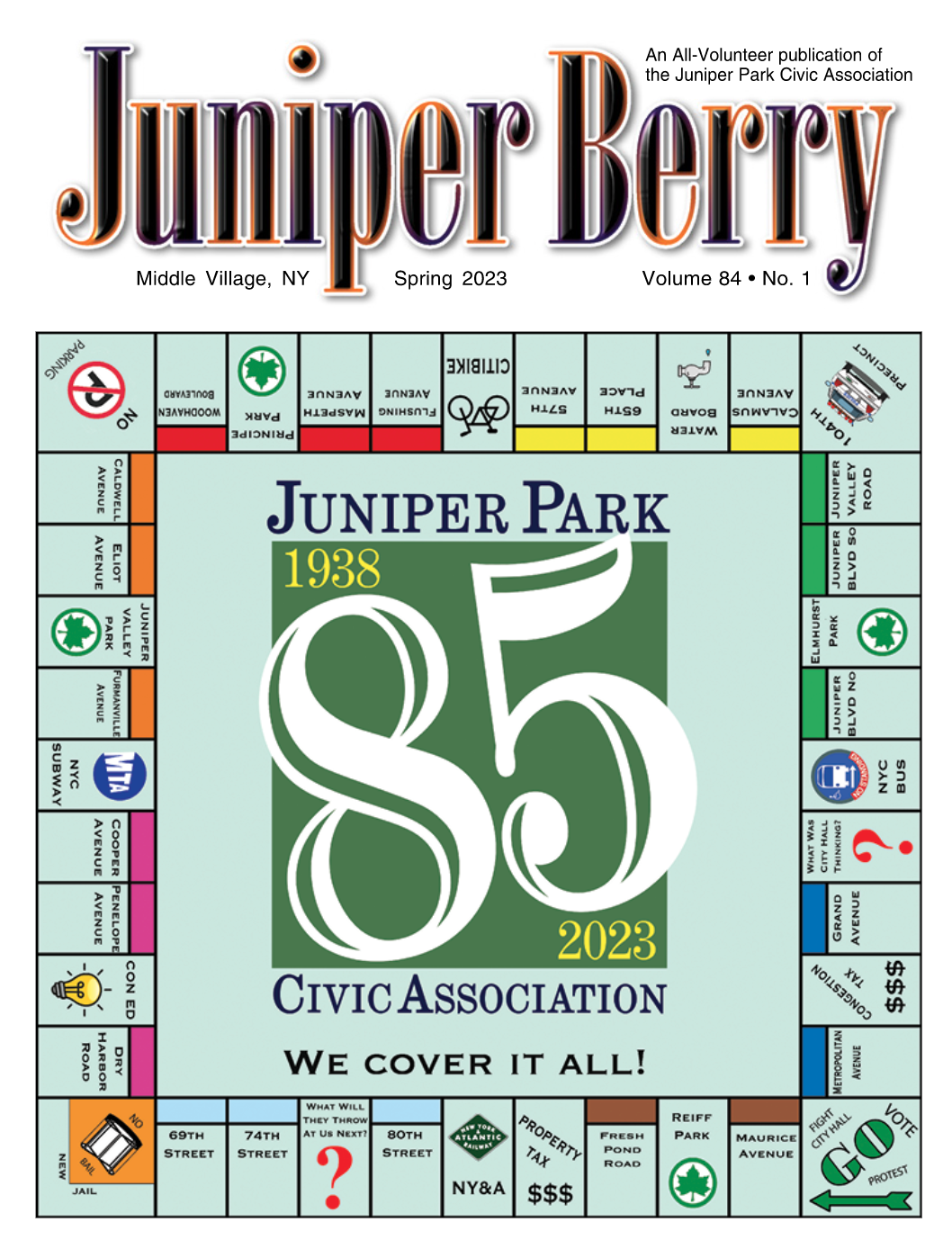I had never been to Brooklyn nor seen the Brooklyn Dodgers of Pee Wee, Jackie, Campy, and the rest, play at Ebbets Field and I was anxious to do both, as my father and I departed our Rego Park apartment on that warm, sunny summer weekday in 1949.
Our Ebbets Field bound Franklin Avenue local went whoosh as it negotiated the sharp S curve which led into the southbound local track of the BMT Prospect Park subway station.
We exited the station, crossed Empire Boulevard, and headed for Ebbets Field as a green and silver Board of Transportation bus pulled up to the curb. By 1949, only a few trolley lines remained in Brooklyn. Uncovered abandoned trolley tracks embedded in Empire Blvd were reminders of the old order of things.
Ebbets Field, confined by the grid pattern of Brooklyn streets was box shaped and smaller than Yankee Stadium or the Polo Grounds, home of the New York Giants. There were no stands in right field, so if a fair ball cleared the screen atop a high wall, it landed on Bedford Avenue and was a home run. The bullpens were located on the playing field between the stands and foul lines. The home (Dodgers) bullpen was located along the right foul line and the visitors’ bullpen was located along the left field foul line. A foul ball entering the bullpen area caused personnel to scatter. I found Ebbets Field to be more intimate and friendlier, with no stuffed shirt Wall Street types as at Yankee Stadium and the Polo Grounds.
The game had just started when we arrived at the ballpark and took reserved seats along the left field foul line close to the visiting Phillies’ bullpen area. The Dodgers fell behind early and could do little against Philly second line starting pitcher Sylvester “Blix” Donnelly. Jackie Robinson led off the bottom of the fifth inning with a bunt single, then danced off first, like Fred Astaire in cleats, exciting the fans but unnerving Donnelly. However, the Dodgers failed to score. In the top of the sixth inning, Philly slugger Del Ennis led off with a home run into the lower left field stands. This was followed by a homer by pinch hitter Robert “Buddy” Blattner. Veteran relief pitcher Linwood “Schoolboy” Rowe entered the game and stopped the Dodgers.
The Dodgers Sym-Phony Band played a few sour notes. The Dodgers had lost to the Phillies. In the Borough of Churches on that warm, sunny summer afternoon, thou- sands of the Flatbush faithful who worshipped at the altar of Abner Doubleday departed in silence.
As our speedy homeward bound Brighton Express ascended the Manhattan Bridge, I glanced back at a Brooklyn of Dodgers and trolleys of which Frank Sinatra later sang, “There used to be a ballpark here,” paying homage to a long-ago Brooklyn where baseball was a religion, and Ebbets Field was its shrine.



